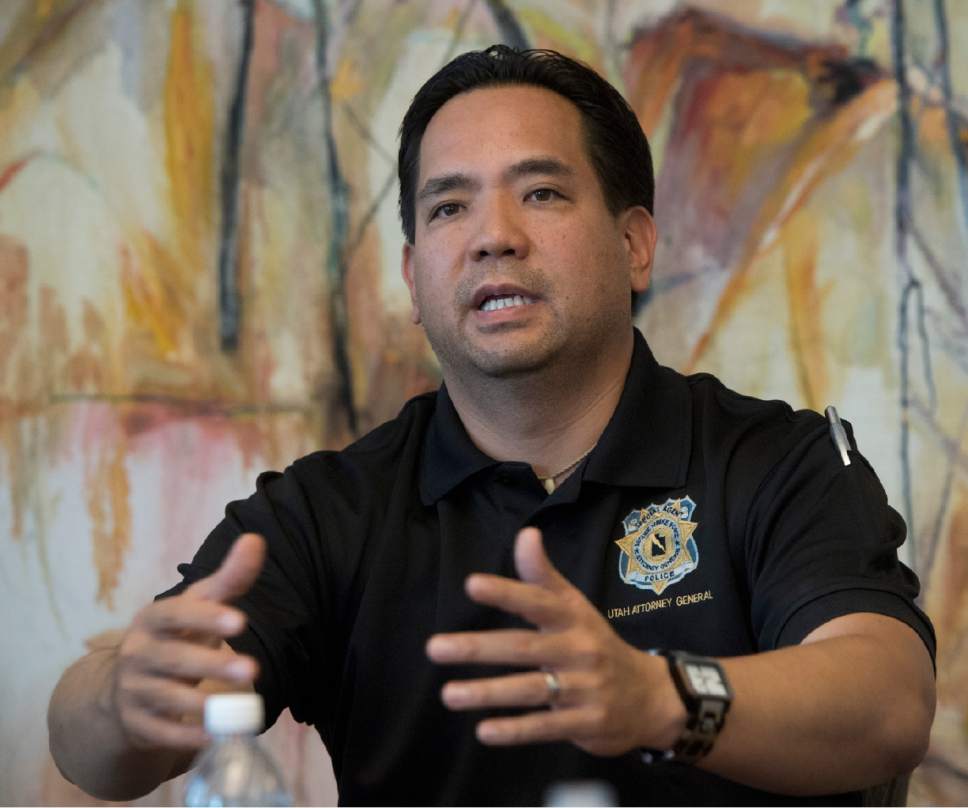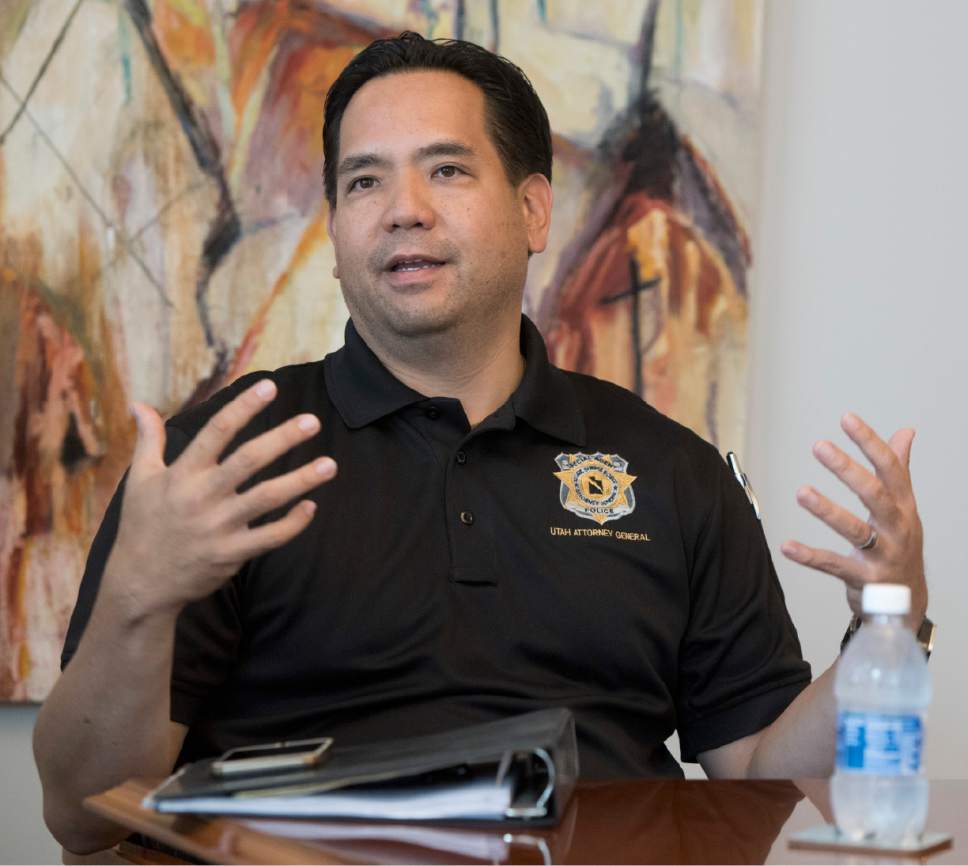This is an archived article that was published on sltrib.com in 2017, and information in the article may be outdated. It is provided only for personal research purposes and may not be reprinted.
Salt Lake Tribune columnist Robert Gehrke reported over the weekend that ever since Utah Attorney General Sean Reyes was mentioned as a finalist for chairman of the Federal Trade Commission, he has received about $100,000 in campaign contributions from — guess who?
Yep, corporations, some with unsavory pasts, that have been investigated or are regulated by — ta-da — the FTC.
Nothing to see here, folks, Reyes campaign adviser Alan Crooks told Gehrke. Just regular contributions from folks who like to attend fundraising events.
We've been here before.
Reyes was appointed attorney general by Gov. Gary Herbert after his immediate predecessor, John Swallow, resigned amid the mire of a pay-to-play scandal.
Swallow and his immediate predecessor, Mark Shurtleff, were eventually charged with multiple felonies.
While the charges against Shurtleff eventually were dropped and Swallow was cleared by a jury, the evidence of the state's top law enforcement officers meeting with and taking favors from questionable business types under indictment or investigation — and implications the two attorneys general were reluctant to prosecute businesses that happened to be good campaign contributors — tainted the office.
Reyes' office hasn't shown the same pay-to-play atmosphere that landed Shurtleff and Swallow in trouble, but he has been an aggressive fundraiser, unabashedly partisan in his policy decisions and, behind the scenes, lent his name to rumors of possibly seeking higher office.
When Reyes' name surfaced as possible FTC boss, he was described in some stories as a rising Republican star. That raised this question: What does it take to be a rising GOP star?
Has Reyes' office scored great victories in defeating organized crime? Has he put forward sweeping justice or prison reforms? Has he demonstrably streamlined his office into a more efficient operation?
"Nope," "nein" and "nyet."
What Reyes has done is support tea party ideas (like battling the federal government over control of public lands), show a reluctance to investigate criminal allegations against fellow Republicans and, perhaps most important, become an early Donald Trump backer.
When Beaver County Sheriff Cameron Noel, son of powerful Utah Rep. Mike Noel, R-Kanab, was accused by his own deputies of choking a man handcuffed in a patrol car, the attorney general's office didn't want to take that on. Davis County Attorney Troy Rawlings was asked to take the case instead.
When allegations that San Juan County Commissioner Phil Lyman, an accountant who also is close to Noel, used his office to manipulate property values to benefit his clients, the attorney general's office refused to acknowledge any investigation was underway. Reyes ranks among Utah's least-transparent elected officials. News organizations have constantly fought with his office to honor Government Records Access and Management Act requests for public records. He has even balked at orders from the State Records Committee to turn over documents deemed public under GRAMA.
In 2015, the Utah Headliners Chapter of the Society of Professional Journalists gave Reyes' office its "Black Hole Award" for its lack of transparency.
While Reyes has shown a reluctance to investigate Republicans, environmentalists are fair game.
A top investigator in the attorney general's office who is assigned to enforce laws on areas under the authority of the School and Institutional Trust Lands Administration has been described as unreasonably aggressive. Last year, he arrested 10 nature walkers because they got too close to turf administered by SITLA that has been leased to US Oil Sands for a tar sands mine.
They were hauled off to jail while their children were left behind, having to be picked up by relatives who drove long distances to retrieve them.
Stuff like that, apparently, makes you a rising Republican star.
Reyes, while amassing campaign cash for his re-election last year, reminded potential donors of his heroic role in a sting operation that broke up a sex-trade ring in Colombia and rescued 127 girls.
That was a noble thing.
Reyes has since capitalized on that politically. He has taken VIPs on raids by the Internet Crimes Against Children Task Force when officers have arrested targets suspected of exploiting minors for sex. That has made some prosecutors and investigators uncomfortable.
A 2014 raid ended with no charges filed because Reyes had gone inside the house with investigators and some saw him taking pictures on his cellphone. He denied he had any photos, so the lead prosecutor declined to press charges for fear a defense attorney could successfully argue that all discoverable evidence had not been turned over.
A West Valley City police detective, who was part of the task force, detailed that episode in his report.
Reyes was undeterred. He went undercover at the 2016 Sundance Film Festival in Park City to try to find sex traffickers among that liberal Hollywood crowd. Alas, he found none.
Utah has a long, sorry history of attorneys general during the past half-century. One had his bar license suspended. Another, who used his privilege of being provided a state car chose an expensive yellow sports convertible, was disbarred years after he was in office. Others experienced episodes of incompetence.
I once wrote that of all the attorneys general since the 1960s, the best was Democrat Jan Graham, the only woman to ever hold the office.
That led to a quip by Bud Scruggs, the witty former chief of staff for Gov. Norm Bangerter, who said, "That's like being the tallest building in Tooele."





